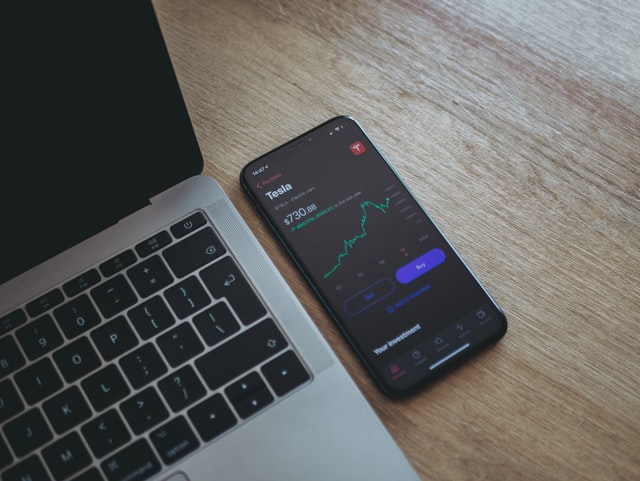More and more traders nowadays find themselves downloading CFD online trading apps and entering the financial markets from their smartphones, but what may seem like an easy to pursue venture actually involves a great deal of risk that sees a number of these enthusiastic traders fall flat on their faces and give up before even getting the hang of it. So, to help you get started on the right foot, we’ve put together an intro guide to online trading as CFDs so you can gain a better understanding of what’s at stake.
What are CFDs?
Short for Contracts For Difference, a CFD represents an agreement between a trader and a broker in which one must pay the other the difference between the value of a financial instrument at time X and its value at time Y. This allows the trader to take advantage of price movements in both directions—increases as well as decreases—without the need to purchase the underlying asset. Sound confusing? Don’t worry—let’s walk through an example to better explain the process.
Let’s use WTI oil as our example. Suppose a trader believes the price of WTI oil will go up in the next two days. He thinks this because he’s been watching the news and sees signs that indicate an increase in oil prices. He’s also been studying the live rates price chart of WTI oil and closely monitoring its recent price changes. So, because he believes the price of WTI oil will go up, he opens a ‘Buy’ deal or ‘Goes long’ on a certain number of contracts for difference, with each contract representing one barrel of oil. If the price of WTI oil does increase over the next few days, he will collect a profit. If, however, the price goes down, he will lose out on the money he invested. Conversely, if our trader was convinced the price of WTI oil would go down, he would’ve opened a ‘Sell’ deal or chosen to ‘Go short.’ Notice that nowhere during the process of online trading with CFDs has our trader purchased any actual barrels of oil. He’s simply investing in price movement or, as it’s called in financial terms, volatility.
In addition to commodities like WTI oil, coffee, wheat, and soybeans, there are many other types of instruments one can trade as CFDs including shares of today’s top companies like Apple, Tesla, McDonald’s and Microsoft, currency pairs like EUR/USD and USD/JPY, cryptocurrencies like Bitcoin, Ethereum, Dogecoin, and more, leading global indices, and ETFs or Exchange-Traded Funds.
Now that you know what online trading of CFDs entails, let’s look at a few other things to think about before you get started.
Find a Regulated Broker
When choosing a CFD broker, choose one that’s licensed and regulated by an official financial regulatory body. This is a kind of “insurance policy” for both the broker and client that holds the broker to a high standard of conduct and ensures the client’s funds are kept safe, and that the broker does not have a history of engaging in any dodgy activity. Also, in the event you’ll want to contact your broker due to some confusion or question, you’ll want to know there’s a functioning customer support desk to talk to. Only consider signing up with a brokerage if they have a valid licence.


Educational Materials
Like we said at the outset, CFD trading—like all forms of online trading—comes with risk, so the better you understand how the financial markets work, the better-informed trading decisions you’ll be able to make. This means choosing a broker that offers educational resources such as trading guides and video tutorials that can get you off to a running start. Some brokers even go so far as to offer guided training sessions with a trading coach, as well as a demo account that will allow you to open and close online trading deals without risking your own funds to ensure you have the hang of it.
Trading Tools
Before settling on a broker, have a look at what kind of trading tools are on offer. You could be the most educated, experienced trader in history but trading without the proper tools to help analyse and monitor the markets is like trying to see in the dark. All brokers will offer some form of live rates and performance charts where you can see both the historical and present performance of your financial instruments in real time, but you should also be looking for such tools and features as technical analysis charts, trading signals, market alerts, and an economic calendar, to name a few—all things which can help you gain insight into which way the price of an instrument may move next and empower you to make more informed decisions.
The Bottom Line
Getting started is as easy as joining a broker, but when it comes to actual online trading, you’ll want to take your time to gain a thorough and well-rounded understanding of how CFD trading works. iFOREX is a leading international broker with over 25 years of industry experience, offering clients an exemplary assortment of educational resources, risk-free demo account, 1-on-1 training with a trading coach, and outstanding client support. Sign up today and start gaining insight from the get-go.

